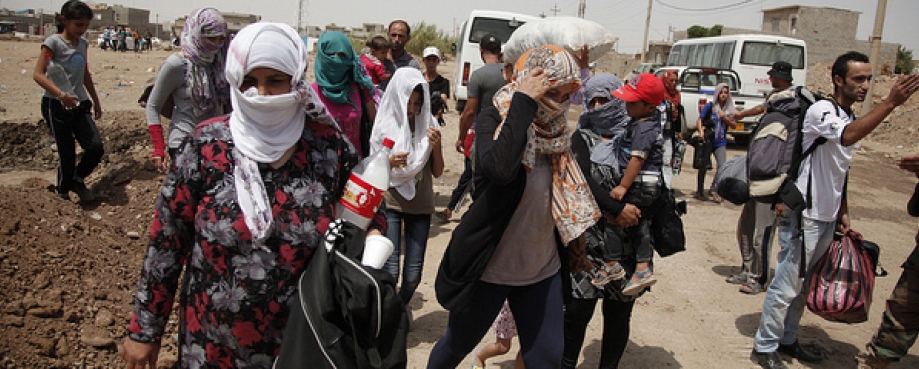
As world leaders meet in London for the Supporting Syria and the Region conference to agree political and economic approaches to tackling the Syria crisis, Ethical Trading Initiative Executive Director, Peter McAllister says that supporting livelihoods and delivering economic opportunities for refugees via an ethical approach should be a key requirement.
Peter McAllister said: “Syrian refugees are desperate to work to support their families.
“Furthermore, responsible business can make a positive contribution to the livelihoods of both refugees and host communities in countries such as Turkey, Lebanon and Jordan.”
Yet according to Peter McAllister, refugees, particularly women, are vulnerable to exploitation and there are too many instances of Syrian refugees working in exploitative circumstance in global supply chains, giving the example of Turkey’s garment trade.
“In Turkey – the world’s third largest supplier of clothing after China and Bangladesh – ETI member companies are having to work very hard to ensure that factories and workshops supplying the fashion industry are exploitation free.”
Peter McAllister pointed out that: “Decent jobs should be part of the solution for refugees." He added: “Efforts to create jobs for refugees should be applauded, but it is important that there is the right regulatory and business environment in place that meets international standards.”
In January, Peter McAllister took part in discussions held between private sector and civil society representatives, which agreed that the following requirements were crucial to enabling economic development in countries affected by the Syrian regional crisis:
- Rigorous regulatory frameworks, enforcement of labour standards, clarity over payment of minimum wages, better auditing of supply chains and managing grievances proactively.
- Support to women workers – female headed households are common amongst Syrian refugee populations – and a zero tolerance approach to child labour while recognising that children need additional care and protection.
- Comprehensive international support to local, national and regional business including export-orientated development and investment while encouraging civil society organisations and the union movement to participate in education, vocational training and livelihoods support.
- Integrating long-term strategies to address economic challenges with short term crisis response.
At the January meeting, participants recommended that the Supporting Syria conference should be followed up by convening regular space for dialogue between government, business, union and civil society to share good practice, learn from each other and to anticipate and address any challenges.
Ends
For further information or to talk to Peter McAllister who is attending the conference contact:
Jane Moyo | Acting Communications Manager | Ethical Trading Initiative | 0207 841 4358 or 07944 270833
